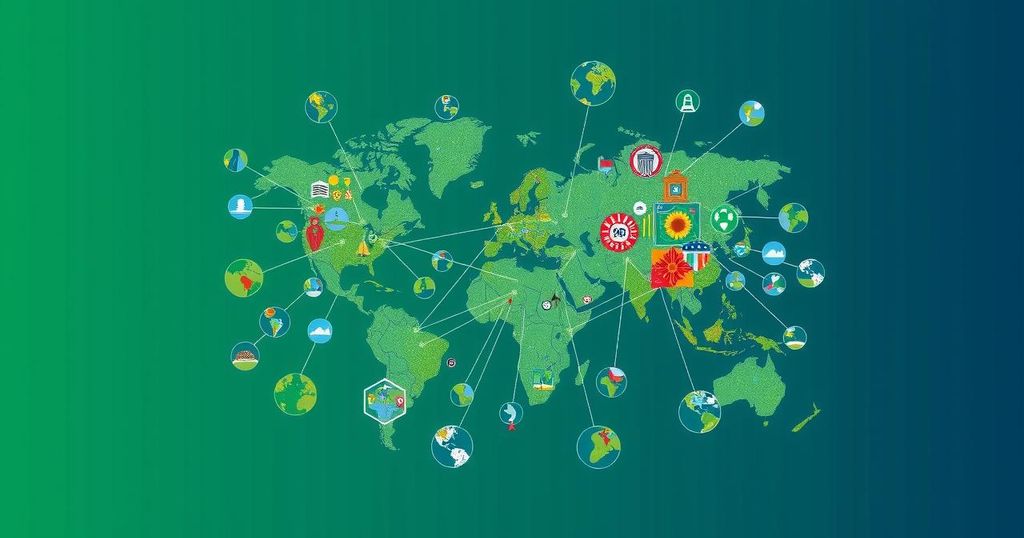COP29, taking place in Baku, Azerbaijan, on November 11, 2024, seeks to establish new climate finance targets amid significant climate challenges. The Azerbaijan presidency aims to position this event as the first ‘COP of Peace,’ promoting initiatives to support communities affected by conflict. However, there are concerns regarding the legitimacy of these efforts in light of Azerbaijan’s military reliance and human rights issues. A successful COP of Peace must directly confront the connections between military spending and climate change, advocating for military emissions accountability and a redirection of resources towards climate justice.
The forthcoming COP29 in Baku, Azerbaijan, scheduled for November 11, 2024, presents an opportunity for global leaders to establish a new target for climate finance amidst increasing climate crises. As the world confronts the need for substantial reforms, the Azerbaijan presidency aims for COP29 to be recognized as the first ‘COP of Peace.’ This initiative includes the ‘COP29 Climate and Peace Initiative,’ which seeks to direct climate finance to communities affected by armed conflict. Furthermore, the idea of a COP truce invites conflicting parties to cease hostilities during the talks to facilitate an atmosphere of cooperation. However, activists remain skeptical of Azerbaijan’s motivations, citing concerns regarding its human rights record and ongoing military reliance. The true efficacy of a COP of Peace must address the link between militarism and climate crises, demanding military transparency about emissions. In contrast to the significant contributions of militaries to global emissions—estimated at 5.5%—Africa’s total emissions account for merely 4%. There is a pressing need for military spending, which totaled $2.4 trillion in 2023, to be redirected toward climate action. This shift is pivotal, as the greatest threat to humanity’s safety derives not from conflicts, but from the climate crisis. Advocates are called to unite, sign open letters for climate justice, and engage with local representatives to emphasize the urgent need for a sustainable approach to global security and environmental integrity.
COP29 marks a critical juncture in global climate discussions, following a decade of unmet climate finance commitments. The previous agreement from 2009, which established a $100 billion annual target for developed nations to assist developing countries, was only fulfilled in 2022. As the climate crisis escalates, the importance of establishing new financing targets has never been more pressing. The Azerbaijan presidency’s ambition to frame COP29 as the ‘COP of Peace’ acknowledges the intersection of climate change and armed conflict, highlighting the necessity for comprehensive strategies that address both climate and security issues. This dual focus seeks to elevate the conversation around how military actions exacerbate environmental damage, specifically through increased emissions and the destruction of ecosystems.
In conclusion, COP29 in Baku has the potential to redefine the intersection of climate action and peace. While initiatives to promote climate finance and a temporary ceasefire are steps in the right direction, they must be accompanied by decisive reforms addressing military contributions to emissions and the redirection of military budgets toward climate solutions. Stakeholders must advocate for comprehensive commitments that align the pursuit of peace with urgent climate action, ensuring that humanity’s foremost threats are effectively and holistically addressed.
Original Source: www.quaker.org.uk






